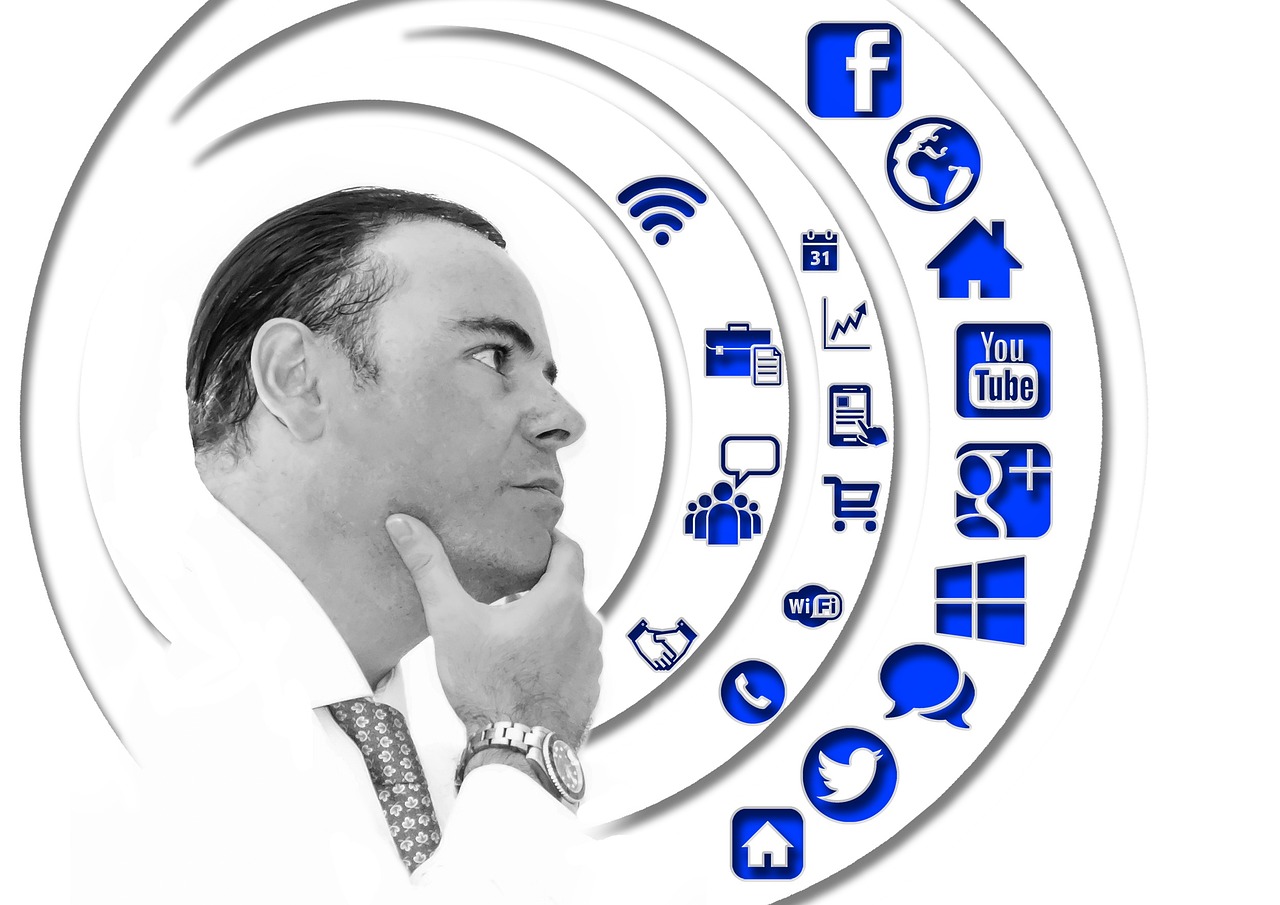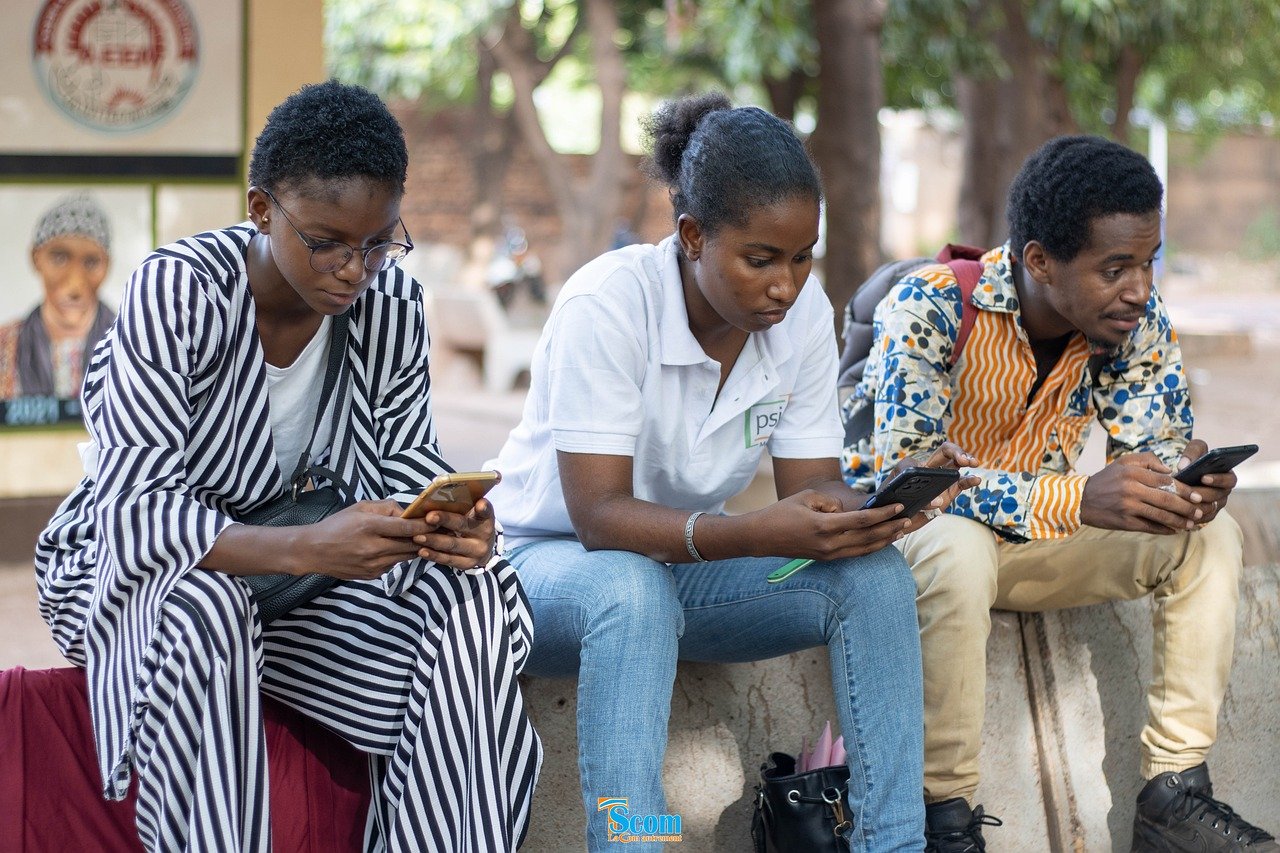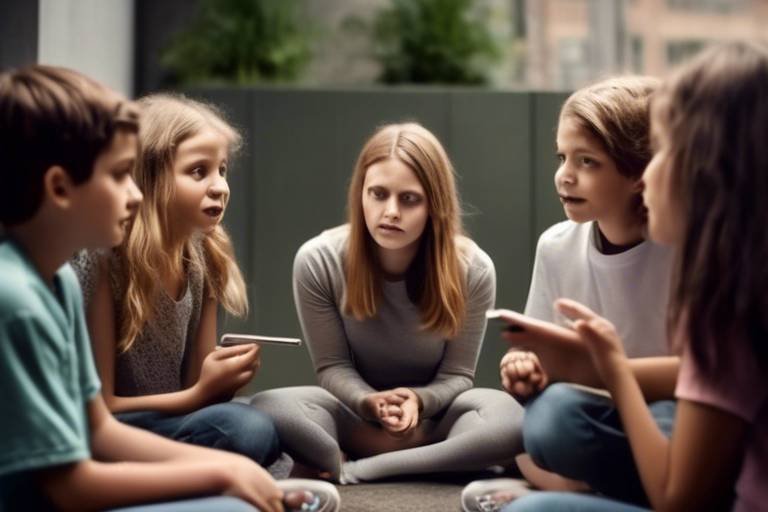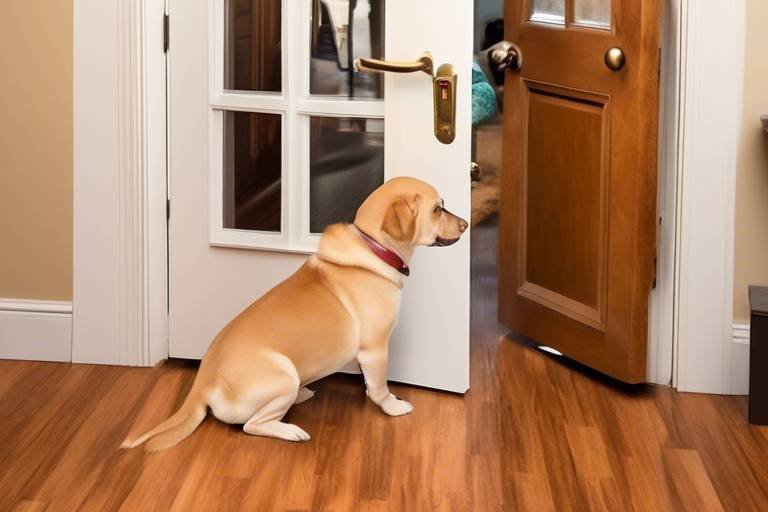The Role of Socialization in Reducing Anxiety
In today's fast-paced world, anxiety has become an almost ubiquitous companion for many individuals. It creeps in during quiet moments, lingers in crowded spaces, and often feels like an unwelcome shadow. But what if I told you that one of the most powerful antidotes to anxiety lies in the very connections we forge with others? That's right! Socialization isn't just about mingling at parties or exchanging pleasantries; it's a vital component of our mental health toolkit. As we dive deeper into this topic, we'll explore how social interactions can act as a soothing balm for anxiety, offering not only relief but also a sense of belonging that we all crave.
Anxiety is more than just a fleeting worry; it's a complex mental health issue that can manifest in various ways. From the racing thoughts that keep you awake at night to the physical symptoms like a racing heart or sweaty palms, anxiety can significantly impact your daily life. It often stems from a mix of genetic, environmental, and psychological factors. Imagine trying to navigate a maze with walls closing in on you—that's how anxiety can feel. The symptoms can vary widely, but they often include feelings of restlessness, fatigue, irritability, and difficulty concentrating. Understanding the roots and repercussions of anxiety is the first step toward managing it effectively.
Now that we have a grasp on anxiety, let’s talk about the magic of socialization. Think of socialization as the sunshine that can break through the clouds of anxiety. Forming connections with others creates a robust support system that can buffer against the overwhelming feelings of worry and fear. When we engage with friends, family, or even acquaintances, we not only share experiences but also build emotional resilience. It’s like having your own personal safety net; when life gets tough, you have people to catch you before you fall. Studies have shown that individuals with strong social ties tend to have lower levels of anxiety and depression.
Social interactions come in many flavors, each offering unique benefits for mental health. Whether it's a cozy family gathering, a heart-to-heart with a close friend, or participating in community activities, every interaction has the potential to uplift our spirits. Let’s break down some of these interactions:
- Family Gatherings: These provide a sense of belonging and unconditional support.
- Friendships: Close friends can offer empathy and understanding, helping you feel less isolated.
- Community Involvement: Engaging in local events fosters a sense of purpose and connection.
There’s something undeniably powerful about face-to-face communication. It’s like the difference between a warm hug and a text message. In-person conversations can significantly reduce feelings of isolation and anxiety. When you talk to someone in person, you can read their body language, share laughter, and build trust in ways that digital communication often falls short. The emotional support that comes from a simple conversation can be incredibly grounding, reminding us that we are not alone in our struggles.
In an age where digital communication is the norm, online socialization has carved out its own niche in the realm of mental health. For those who may find in-person interactions daunting, virtual connections can provide a safe space to express oneself. Social media platforms, forums, and online communities allow individuals to share their experiences and connect with others who understand their challenges. While it may not replace the warmth of a hug, online socialization can still play a significant role in alleviating feelings of anxiety and building a sense of community.
Engaging with others offers profound psychological benefits. When we socialize, our brains release chemicals like oxytocin and serotonin—often referred to as the "feel-good hormones." These natural mood boosters can enhance our mood, increase feelings of belonging, and even reduce stress levels. It’s like having a built-in happiness generator! The simple act of sharing a laugh with a friend or participating in a group activity can lift our spirits and remind us that we are part of something bigger than ourselves.
Building social connections requires a bit of effort and intention, but the rewards are worth it. Here are some practical strategies you can implement to enhance your social interactions and combat anxiety:
Participating in local community groups can be a fantastic way to foster new friendships and reduce anxiety. Engaging in shared interests—whether it’s a book club, a sports team, or a volunteer organization—can create a sense of belonging and support. When you’re surrounded by like-minded individuals, it’s easier to strike up conversations and form meaningful connections. Plus, the shared experiences can serve as a great conversation starter, making socialization feel more natural and less intimidating.
Effective communication is vital for successful socialization. If you often find yourself feeling anxious in social situations, improving your communication skills can help you feel more confident. Practice active listening, maintain eye contact, and don’t be afraid to express your thoughts and feelings. Remember, everyone is human, and most people are more understanding than we give them credit for. By honing these skills, you can ease your anxiety and foster deeper connections with those around you.
Q: Can socialization really help reduce anxiety?
A: Yes! Engaging with others can provide emotional support, reduce feelings of isolation, and boost mood, all of which can help alleviate anxiety.
Q: What if I’m shy or introverted?
A: Start small! Engage in low-pressure social settings or online communities where you can connect at your own pace.
Q: How do I maintain social connections?
A: Regular check-ins, planning activities, and showing genuine interest in others' lives can help nurture your relationships over time.

Understanding Anxiety
Anxiety is not just a fleeting feeling of worry; it’s a complex mental health issue that can manifest in various ways. At its core, anxiety is characterized by excessive worry and fear that can interfere with daily life. Imagine waking up every morning with a heavy cloud hanging over your head, making even the simplest tasks feel daunting. This pervasive sense of dread can stem from numerous factors, including genetics, brain chemistry, personality, and life events.
The symptoms of anxiety can vary widely from person to person, but they often include physical manifestations such as a racing heart, sweating, trembling, or even gastrointestinal issues. It’s as if your body is continuously in fight-or-flight mode, ready to respond to a threat that may not even exist. Additionally, anxiety can lead to emotional symptoms like irritability, restlessness, and difficulty concentrating.
The impact of anxiety on one’s daily life can be profound. It can shape how you interact with others, how you perform at work or school, and even how you engage in leisure activities. For some, the very thought of socializing can trigger a tidal wave of anxiety, leading to avoidance behaviors that further exacerbate feelings of isolation and loneliness.
Understanding anxiety is crucial not only for those who experience it but also for their friends and family. It’s essential to recognize that anxiety is a legitimate mental health condition, not just a sign of weakness or a personality flaw. Support from loved ones can be invaluable in managing anxiety, as it helps create a safety net of understanding and compassion.
In many cases, anxiety can be managed effectively through a combination of therapy, medication, and lifestyle changes. The journey to understanding and overcoming anxiety may be challenging, but it is entirely possible. As we explore the role of socialization in reducing anxiety, it becomes clear that forming connections with others can be a powerful tool in this journey.
| Common Symptoms of Anxiety | Physical Symptoms | Emotional Symptoms |
|---|---|---|
| Excessive Worry | Racing Heart | Irritability |
| Restlessness | Sweating | Difficulty Concentrating |
| Avoidance Behavior | Trembling | Feelings of Helplessness |
| Sleep Disturbances | Gastrointestinal Issues | Overwhelming Fear |

The Importance of Socialization
Socialization is not just a buzzword; it's a fundamental aspect of our human experience that significantly impacts our mental health. Think of socialization as the glue that holds our emotional well-being together. When we connect with others, we create a safety net of support that can help us navigate through life's challenges, particularly those that trigger anxiety. The act of sharing our thoughts, feelings, and experiences with others can be incredibly liberating, like taking a deep breath after being underwater for too long.
Why is this connection so vital? Well, when we engage socially, we open ourselves up to a myriad of benefits. For instance, social interactions can help us feel less isolated and more understood. Imagine being in a room full of people who share similar interests or experiences; that feeling of belonging can wash away feelings of anxiety like a warm wave on a chilly day. The emotional support derived from these connections acts as a buffer against stress, allowing us to face our fears head-on rather than retreating into our shells.
Moreover, socialization can enhance our emotional resilience. When we have a network of friends or family to lean on, we are better equipped to handle life's ups and downs. This network can provide perspective during tough times, reminding us that we are not alone in our struggles. It’s like having a team of cheerleaders who motivate us to keep pushing forward, even when the going gets tough.
Additionally, socialization can lead to the development of essential coping mechanisms. Engaging with others can help us learn new ways to manage our anxiety. For instance, through shared experiences, we can discover that others have faced similar challenges, which can normalize our feelings and reduce the stigma associated with mental health issues. It’s like finding a map that shows you the way out of a maze; suddenly, the path becomes clearer.
To further illustrate the importance of socialization, consider the following benefits:
- Improved Mood: Socializing releases endorphins, the body's natural feel-good hormones, which can elevate our mood and reduce feelings of anxiety.
- Increased Sense of Belonging: Regular interaction with others fosters a sense of community, making us feel valued and accepted.
- Enhanced Coping Skills: Sharing experiences with others can provide new strategies for managing anxiety and stress.
In conclusion, socialization is a powerful antidote to anxiety. By forming connections with others, we not only buffer ourselves against the harsh realities of life but also enrich our emotional landscape. Whether through face-to-face conversations or online interactions, the importance of socializing cannot be overstated. It’s a vital ingredient in the recipe for mental well-being, helping us to thrive rather than merely survive.
Types of Social Interactions
Social interactions come in various forms, each contributing uniquely to our mental well-being and anxiety levels. Understanding these types can help us leverage them to create meaningful connections that enhance our lives. First off, let's consider family gatherings. These events often serve as a foundational support system, where individuals can share experiences, celebrate achievements, and provide emotional comfort. The familiarity of family can create a safe space for expressing feelings, which is crucial for reducing anxiety.
Next, we have friendships. Friends are the chosen family we build throughout our lives. Engaging with friends allows us to share laughs, seek advice, and distract ourselves from stressors. Whether it's a casual coffee date or a weekend getaway, these interactions can significantly lighten our emotional load. Moreover, friendships often encourage us to step out of our comfort zones, which can lead to personal growth and resilience against anxiety.
On the other hand, community involvement plays a vital role in fostering connections beyond our immediate circles. Joining clubs, volunteering, or participating in local events can introduce us to new people who share similar interests. This sense of belonging is essential; it reminds us that we are part of something larger than ourselves, which can alleviate feelings of isolation. For instance, participating in a local sports team or art class not only enhances our skills but also opens doors to new friendships.
It's important to recognize that each type of social interaction has its own set of benefits. For example, while family gatherings might provide emotional support, friendships often offer a sense of adventure and spontaneity. Likewise, community involvement can enrich our lives with diverse perspectives and experiences. Here’s a quick overview:
| Type of Interaction | Benefits |
|---|---|
| Family Gatherings | Emotional support, shared experiences, comfort |
| Friendships | Laughter, distraction, personal growth |
| Community Involvement | Belonging, new perspectives, shared interests |
In summary, recognizing the different types of social interactions can empower us to seek out connections that not only enrich our lives but also serve as a buffer against anxiety. By nurturing these relationships, we can create a robust support network that enhances our emotional resilience and overall well-being.
Face-to-Face Communication
When it comes to combating anxiety, is like a breath of fresh air. Imagine standing in a crowded room, surrounded by people who genuinely care about you. The warmth of their presence, the subtle nuances of their expressions, and the sound of their laughter create an environment that can significantly reduce feelings of isolation and anxiety. This type of interaction offers something that digital communication simply can't replicate—a sense of connection that resonates on a deeper emotional level.
One of the most profound advantages of in-person conversations is the immediate feedback we receive. When we talk to someone face-to-face, we can observe their body language, tone of voice, and facial expressions. These non-verbal cues provide us with a wealth of information that helps us gauge the other person's feelings and reactions. This creates a dynamic interaction where empathy flourishes, making it easier to express our own emotions and concerns. In contrast, text messages or emails can often lead to misunderstandings, where a simple misinterpretation can spiral into unnecessary anxiety.
Furthermore, engaging in face-to-face interactions can boost our self-esteem and confidence. When we share our thoughts and feelings with others, we often find that we are not alone in our struggles. This realization can be incredibly liberating. It’s like discovering that you have a team behind you, cheering you on as you navigate the challenges of life. The support system that develops through these interactions acts as a buffer against anxiety, reminding us that we are part of a larger community.
Let’s not forget the joy that comes from shared experiences. Whether it’s grabbing coffee with a friend, attending a family gathering, or participating in a community event, these moments create lasting memories that enrich our lives. They serve as reminders that life is full of beautiful connections, and that we have the power to cultivate them. Here’s a quick look at some of the benefits of face-to-face communication:
- Enhanced Emotional Connection: Building trust and empathy through shared experiences.
- Instant Feedback: Understanding emotional cues that help navigate conversations.
- Support System: Creating a network of friends and family who can provide encouragement.
- Boosted Confidence: Gaining self-assurance by expressing oneself openly.
In essence, face-to-face communication is a powerful antidote to anxiety. It fosters a sense of belonging and community that is essential for our mental well-being. So, the next time you feel overwhelmed by anxiety, consider reaching out to a friend or loved one for a chat. You might just find that a simple conversation can make all the difference.
Q: How does face-to-face communication help reduce anxiety?
A: Face-to-face communication allows for immediate emotional feedback, enhances connections through non-verbal cues, and builds a support system that can buffer against anxiety.
Q: What if I struggle with initiating face-to-face conversations?
A: Start small by engaging with familiar people, practicing active listening, and gradually expanding your social circle. Remember, everyone feels anxious at times!
Q: Can online communication also help with anxiety?
A: Yes, online communication can provide support, especially for those who find in-person interactions challenging. However, it’s essential to balance both online and offline connections for optimal mental health.
Online Socialization
In today's fast-paced world, has emerged as a lifeline for many, especially those grappling with anxiety. Imagine it as a cozy virtual café where individuals can gather, share stories, and connect without the pressure of face-to-face interactions. For some, the thought of stepping into a crowded room can feel overwhelming, but the digital realm offers a welcoming alternative. Here, people can engage in conversations from the comfort of their homes, making it easier to open up and express themselves.
One of the most significant advantages of online socialization is the ability to connect with like-minded individuals across the globe. Whether through social media platforms, online forums, or virtual meetups, the possibilities for interaction are endless. This form of engagement allows individuals to find communities that resonate with their interests, hobbies, or struggles. For instance, someone interested in gardening can join a Facebook group dedicated to plant enthusiasts, while another person dealing with anxiety might find solace in a support group on a mental health app.
Moreover, online communication can serve as a stepping stone for those who may feel shy or insecure in traditional social settings. The barrier of distance and anonymity can reduce the initial anxiety of meeting new people. As individuals engage in text chats, video calls, or even gaming, they often find themselves more at ease, leading to deeper connections and friendships. This gradual exposure can build confidence, making it easier to transition to in-person interactions when they feel ready.
However, it's essential to recognize that while online socialization can be incredibly beneficial, it is not without its challenges. The lack of physical presence can sometimes lead to misunderstandings or a sense of isolation, as the nuances of body language and tone are often lost in text-based communication. To combat this, it's vital to engage in platforms that encourage real-time interaction, such as video calls or live chats, which can help bridge the gap between virtual and physical connections.
In summary, online socialization stands as a powerful tool in the fight against anxiety. It offers a platform for individuals to connect, share, and support each other without the pressures of traditional social settings. By fostering these digital relationships, we can create a sense of community that nurtures emotional well-being and resilience. As we navigate this digital landscape, it’s crucial to strike a balance between online interactions and real-world connections, ensuring that we harness the best of both worlds for our mental health.
- Can online socialization really help reduce anxiety?
Yes, online socialization can provide a supportive environment where individuals can connect without the pressures of face-to-face interactions, helping to alleviate feelings of anxiety. - What are some effective platforms for online socialization?
Popular platforms include social media sites like Facebook and Instagram, online forums, and virtual meeting apps like Zoom or Discord. - Is it possible to form genuine connections online?
Absolutely! Many people have formed strong friendships and support networks through online interactions, often leading to in-person meetings as relationships develop.
Psychological Benefits of Socialization
When we think about socialization, we often picture gatherings, parties, or even casual chats over coffee. But what many people overlook is the profound psychological impact these interactions have on our mental well-being. Socialization isn't just about having fun; it's a vital component in the complex puzzle of mental health. Engaging with others can act as a buffer against anxiety, helping us navigate life's challenges with greater ease.
One of the most significant benefits of socialization is the enhancement of our mood. When we connect with others, our brains release feel-good hormones like oxytocin and serotonin. These chemicals can elevate our mood, reduce feelings of loneliness, and even increase our overall sense of happiness. Imagine your brain as a garden; social interactions are like sunlight and water, nourishing the plants (your mental health) and helping them thrive. Without these essential elements, the garden can become overgrown with weeds of anxiety and despair.
Moreover, socialization fosters a sense of belonging. Humans are inherently social creatures, and our need for connection is deeply rooted in our biology. When we engage with others, we create a support system that can help us feel less isolated. This sense of belonging can be particularly crucial during tough times. For instance, when you're feeling overwhelmed, having a friend to talk to can make a world of difference. It’s like having a safety net; it catches you when you fall and reassures you that you’re not alone in your struggles.
Another psychological benefit of socialization is the reduction of stress levels. Regular social interactions can help lower cortisol, the stress hormone, in our bodies. When we share our thoughts and feelings with others, it can lighten the emotional load we carry. Think of it this way: when you’re hiking up a steep hill, carrying a heavy backpack can make the journey feel unbearable. However, sharing that load with a friend can transform the experience into a more manageable and even enjoyable adventure. This shared burden not only makes the climb easier but also strengthens the bonds between friends.
Additionally, socialization can improve our self-esteem. Engaging with others allows us to receive feedback and validation, which can reinforce our self-worth. When someone compliments your outfit or appreciates your input during a discussion, it boosts your confidence. It’s a reminder that you matter and that your presence is valued. This positive reinforcement can counteract the negative self-talk that often accompanies anxiety, helping to shift our mindset from one of doubt to one of empowerment.
In conclusion, the psychological benefits of socialization extend far beyond mere companionship. They play a crucial role in enhancing mood, fostering a sense of belonging, reducing stress, and improving self-esteem. By actively seeking out social interactions, we can cultivate a more resilient mindset and navigate the complexities of life with greater ease. So, the next time you're feeling anxious or overwhelmed, remember that reaching out to a friend or joining a group can be a powerful step toward alleviating those feelings.
- How does socialization help reduce anxiety?
Socialization provides emotional support, enhances mood, and fosters a sense of belonging, all of which can alleviate feelings of anxiety. - Can online interactions be as beneficial as face-to-face ones?
Yes, online socialization can also provide support and connection, especially for those who find in-person interactions challenging. - What are some easy ways to socialize?
Joining community groups, attending local events, or simply reaching out to friends can be great ways to enhance social connections.

Strategies for Enhancing Social Connections
Building strong social connections is not just a pleasant endeavor; it’s a vital component of mental well-being, especially for those grappling with anxiety. To enhance your social interactions, you need to approach this with intention and creativity. It’s like planting a garden; you must nourish the seeds of friendship with time, effort, and genuine interest to see them bloom. Here are some effective strategies to help you cultivate these connections.
First and foremost, consider joining community groups. Whether it's a book club, a sports team, or a volunteer organization, these groups provide an excellent platform to meet new people who share your interests. Engaging in activities that excite you can significantly reduce feelings of isolation. Imagine walking into a room filled with people who share your passion for gardening or painting; the shared enthusiasm creates an instant bond. Plus, being part of a community can foster a sense of belonging, which is essential for combating anxiety.
Another effective strategy is to develop your communication skills. Good communication is the cornerstone of any healthy relationship. If you feel anxious about talking to others, consider practicing your skills in low-pressure settings. This could mean chatting with a barista or striking up a conversation with a neighbor. The more you practice, the more confident you’ll become. Remember, even the most seasoned communicators started somewhere! You could also attend workshops focused on improving public speaking or interpersonal communication. These experiences not only enhance your skills but also introduce you to like-minded individuals.
Additionally, don't underestimate the power of nurturing existing relationships. Sometimes, we focus so much on making new friends that we forget to invest in the ones we already have. Reach out to old friends, schedule regular catch-ups, or even send a simple text just to say hello. These small gestures can go a long way in strengthening your connections and providing you with a reliable support system. It’s like tending to a plant; regular care keeps it healthy and vibrant.
Lastly, consider attending local events. From concerts to art exhibitions, local gatherings provide a fantastic opportunity to meet new people. Attend events that genuinely interest you, and don’t be afraid to strike up conversations with fellow attendees. You might be surprised at how many people are just as eager to connect. Plus, these shared experiences can serve as great conversation starters, making it easier to foster new friendships.
Incorporating these strategies into your life can create a robust social network that not only alleviates anxiety but also enriches your overall life experience. Remember, it’s all about taking that first step and being open to the possibilities that come with socialization.
- How can I overcome my fear of socializing? Start small by engaging in low-pressure environments and gradually work your way up to larger gatherings.
- What if I don’t have any community groups near me? Consider online groups or virtual meetups focused on your interests; many platforms offer a variety of options.
- How often should I reach out to friends? Regular communication is key; aim for at least once a month, but feel free to connect more often if you wish!
Joining Community Groups
Joining community groups is like stepping into a vibrant tapestry of human connection, where each thread represents a unique story, experience, and perspective. When you immerse yourself in these groups, you not only meet new people but also create a sense of belonging that can significantly alleviate feelings of anxiety. Imagine walking into a room filled with individuals who share your interests and passions; it’s like finding a second home where you can truly be yourself.
Community groups come in various forms, from hobby clubs and sports teams to volunteer organizations and support groups. Each of these spaces offers a unique opportunity to connect with others who understand your journey. For instance, if you’re passionate about gardening, joining a local gardening club can introduce you to fellow enthusiasts who share tips, tricks, and laughter. This shared passion fosters camaraderie, making it easier to form bonds and reduce feelings of isolation.
Moreover, being part of a community group can provide a structured way to engage socially. Regular meetings or activities create a routine that encourages you to step out of your comfort zone, which is essential for overcoming anxiety. Engaging in group activities can also serve as a distraction from anxious thoughts, allowing you to focus on the task at hand and connect with others in a meaningful way.
Here are some potential benefits of joining community groups:
- Enhanced Social Skills: Interacting with diverse individuals helps you develop communication skills and boosts your confidence in social settings.
- Support Network: Community groups often provide emotional support, creating a safety net during challenging times.
- Shared Interests: Meeting people with similar hobbies or values fosters deeper connections and provides a sense of purpose.
In addition to these benefits, community groups often engage in activities that promote mental well-being, such as workshops, team-building exercises, and social events. These activities not only enhance your social skills but also help you cultivate a positive mindset. As you participate in these gatherings, you may find that your anxiety levels decrease, replaced by feelings of joy and fulfillment.
So, if you’re feeling overwhelmed by anxiety, consider exploring local community groups. Whether you’re into art, sports, or even book clubs, there’s likely a group waiting for you. Remember, the first step is often the hardest, but once you take that leap, you may discover a supportive network that enhances your mental well-being and enriches your life in unexpected ways.
1. How do I find community groups in my area?
You can start by searching online for local meetups, community centers, or social media groups that align with your interests. Websites like Meetup.com can be a great resource.
2. What if I feel too anxious to join a group?
It’s completely normal to feel anxious about joining new groups. Consider reaching out to a friend to accompany you, or start with online groups where you can engage at your own pace.
3. Are community groups only for extroverts?
Absolutely not! Community groups welcome individuals of all personality types. Many introverts find comfort in shared activities and can thrive in these settings.
4. How often should I participate in group activities?
The frequency depends on your comfort level and schedule. Regular participation can help you build stronger connections, but it’s important to find a balance that works for you.
Developing Communication Skills
Communication is more than just exchanging words; it's about connecting with others on a deeper level. When you enhance your communication skills, you're not just improving your ability to speak; you're also increasing your confidence in social situations, which can significantly reduce anxiety. Think of communication as the bridge that connects you to others. The stronger that bridge, the easier it is to cross over into meaningful interactions.
One of the first steps in developing effective communication skills is to practice active listening. This means not just hearing what someone says, but fully engaging with them. When you listen actively, you show that you value their words, which helps build trust and rapport. Try to respond with thoughtful questions or comments that reflect your understanding of their perspective. This not only improves your conversation skills but also makes the other person feel appreciated.
Another important aspect is being aware of non-verbal communication. Did you know that a significant portion of communication is conveyed through body language, facial expressions, and tone of voice? For instance, maintaining eye contact can show that you are engaged and interested. On the flip side, crossed arms might signal defensiveness or discomfort. Being mindful of your own non-verbal cues, as well as those of others, can greatly enhance your interactions and reduce misunderstandings.
Moreover, practicing your communication skills in various settings can help you become more adaptable. For example, try engaging in conversations with friends, family, or even strangers in casual settings like coffee shops or community events. Each interaction provides an opportunity to refine your skills. You might also consider joining a local speaking club, such as Toastmasters, where you can practice public speaking and receive constructive feedback in a supportive environment.
Additionally, here are some tips to improve your communication skills:
- Be clear and concise: Avoid jargon and overly complex sentences. The simpler your message, the easier it is for others to understand.
- Ask open-ended questions: This encourages others to share more about themselves, fostering deeper conversations.
- Practice empathy: Try to put yourself in the other person's shoes. Understanding their feelings can help you respond more thoughtfully.
Lastly, don't forget the power of feedback. After a conversation, reflect on what went well and what could be improved. You might even ask trusted friends for their insights. This continuous loop of practice and feedback will help you grow more confident in your abilities, making social interactions less daunting and more enjoyable.
Q: How can I overcome my fear of speaking in public?
A: Start small by practicing in front of a mirror or with friends. Gradually increase your audience size as you gain confidence. Remember, everyone makes mistakes, and it’s okay to be imperfect!
Q: What if I struggle with small talk?
A: Small talk can be challenging! Try preparing a few open-ended questions or topics in advance. This can help you feel more prepared and less anxious when engaging in casual conversations.
Q: Are there specific activities that can help improve my communication skills?
A: Yes! Activities like joining a debate club, participating in improv classes, or even engaging in team sports can enhance your communication abilities. These settings often require quick thinking and effective interaction, which can be beneficial for your growth.
Frequently Asked Questions
-
What is anxiety, and how does it affect people?
Anxiety is a common mental health condition characterized by feelings of excessive worry, fear, or apprehension. It can impact daily life significantly, making even simple tasks feel overwhelming. Symptoms may include restlessness, fatigue, difficulty concentrating, and physical effects like rapid heartbeat.
-
How can socialization help reduce anxiety?
Socialization can provide a support network that helps individuals cope with anxiety. By forming connections with others, people can share experiences, receive emotional support, and feel a sense of belonging, all of which can significantly alleviate feelings of isolation and worry.
-
What are some effective types of social interactions?
There are various types of social interactions that can benefit mental health, including family gatherings, friendships, community involvement, and even workplace relationships. Each type offers unique advantages, such as emotional support, shared experiences, and opportunities for personal growth.
-
Is face-to-face communication more beneficial than online interactions?
Face-to-face communication can often provide deeper emotional connections and trust, reducing feelings of isolation more effectively than online interactions. However, online socialization can also be beneficial, especially for those who find in-person interactions challenging. Both forms can contribute positively to mental well-being.
-
What psychological benefits does socialization provide?
Engaging with others can enhance mood, foster a sense of belonging, and reduce stress levels. Social interactions can lead to increased happiness and improved mental health by providing individuals with a support system and opportunities to share their thoughts and feelings.
-
How can I enhance my social connections?
Enhancing social connections can be achieved by joining community groups, attending local events, and nurturing existing relationships. Actively participating in social activities can help create new friendships and strengthen bonds with others, ultimately reducing anxiety.
-
What are some tips for developing better communication skills?
Improving communication skills can involve practicing active listening, being open and honest in conversations, and expressing thoughts clearly. Engaging in social situations regularly can also help build confidence and reduce anxiety in future interactions.



















